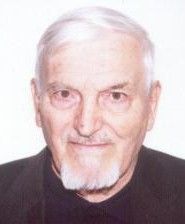Daniel Comboni
Comboni Missionaries
Institutional area
Other links
Newsletter
In Pace Christi
Simeoni Antonio
Fr. Antonio Simeoni (22.06.1923 – 14.05.2007)
Fr. Antonio Simeoni was born at Cassacco, Udine, on 22 June 1923. He took his first vows on 7 October 1943 and was ordained priest on 11 June 1949. Following the practice of the time, he received his formation at the two houses of Venegono and Verona.
Once ordained, he was immediately sent to South Sudan where he stayed until 1864, the year he was expelled with all the other missionaries. He was then assigned to Italy where he worked in mission promotion for seven years. Health problems kept him from returning to the mission until 1971, when the then General Superior, Fr. Tarcisio Agostoni, assigned him to Uganda.
He worked among the Madi tribe in north-east Uganda, in the diocese of Arua, from 1971 to 1990. He was parish priest at the recently-opened Metu mission and then at Ajumani. Having left Ajumani, he worked for a short period at Moyo. Fr. Luigi Gabaglio, who knew him while working among the Madi, describes him thus: “Even though he found it difficult to express himself in all the languages, especially in Madi, which is a very difficult one, he always tried to give his best both in pastoral work and in meeting the needs of the people.”
He gave himself totally to pastoral work with frequent visits to all the chapels of the mission, regular monthly meetings with the catechists and other co-workers, paying close attention to the various parish groups (Catholic Action, Crusaders, altar boys, choirs), convinced as he was that they were the power behind the life of the community.
He would meet these groups both at parish and regional level and, when possible, at chapel level. Because of his high regard for the liturgy, he closely assisted altar servers and choirs. There was a good group of altar boys at Ajumani, well trained and committed to their work. Every year each group celebrated its patron saint with a great feast that helped them to feel united and motivated.
He worked a lot for vocations, both for the diocesan seminary and the male and female religious Institutes. He personally saw to the preparation of the candidates for first holy communion and confirmation. When he visited the chapels he instructed these groups personally and examined them individually before allowing them to receive the sacraments.
In the early eighties, when many people from the area fled to Sudan on account of the conflict between government troops and rebels, Fr. Antonio stayed in the mission with the other missionaries, protecting the people against the fighting soldiers. The missionaries courageously condemned the killings, theft and injustices, often placing their own lives in danger. Fr. Antonio was, on occasions, roughly treated by the soldiers, but he continued to protect his people.
He was a man of great faith, a faith nourished by prayer and the Eucharist. He was not an intellectual, with neither great imagination nor big projects. He was a simple man, a little old-fashioned, suited to simple people with whom he easily identified and had a relationship of love and respect.
In 1990 he was sent to the Acholi district, first to Kalongo and then to Namokora, Pajule and other missions where he remained until 2002. The civil war, which greatly affected the life of this ethnic group from 1987 until the present day, found him again in the front line, always protecting his people.
He always expressed his difficulties to his superiors, opening his heart to them through his letters, written in a tight and tiny handwriting. In them he expressed observations like: “One should not only be concerned with the difficulties of community life, but also with those that derive from different ideas about pastoral methods and which could create unease among the faithful.”
Starting in 1998, his letters began to speak also of his health: leg pains (a short period of paralysis), cataracts to be operated, various aches and pains and a period at Verona C.A.A. which turned out to be longer than planned, and his return to Uganda several months late.
In 1998 he celebrated his golden jubilee of ordination. He would remember the professors who guided him during his formation time and complain that he was unable to thank God with the same faith and courage as the “poor people who continually teach me to praise and thank Him for everything”.
In 2001, while on holiday in Italy, by letter he kept his provincial superior, Fr. Guido Oliana, informed of his state of health. He clearly understood his physical limits were many and that it was becoming impossible for him to return to the mission, even if “the heart is still in Africa”. In July 2002 he was assigned to the Italian province and to the community of Cordenons.
Fr. Antonio is one of that great missionaries who, with simplicity and humility, did their duty in obedience and anonymity. They did not leave great projects or monuments in their memory, but they wrote their names in the book of life of so many simple people who received from them the gift of the saving Word and the hope of true life. If the name of Fr. Antonio is written in the hearts of the many people he instructed, it is also written in the book of the Lamb of sacrifice. Thank you, Fr. Antonio, for your missionary service.
(Fr. Giuseppe Filippi)
Da Mccj Bulletin n. 236 suppl. In Memoriam, ottobre 2007, pp. 45-50.

